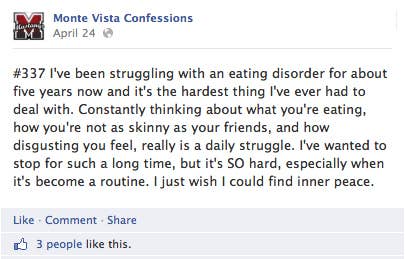
Teenagers across the country are dishing all about what's happening at their high schools — spreading rumors, talking behind one another's backs. But they're not just doing it in the hall, or over text message. They're doing it on Facebook "confession pages" that are unofficially linked to their schools.
The Facebook confession page trend is spreading across the country. Think Gossip Girl but open to all. "Everyone posts so much about themselves. It is sort of disturbing, borderline creepy, but sickly entertaining," one student at a high school in Silicon Valley, told me.
Here's how it works: An admin sets up page with a link to a Survey Monkey page or a Google Doc, where people can submit confessions anonymously. In true Gossip Girl style, no one knows who the admin is, and the admin doesn't know who sends in the posts. Comments and "likes" are often linked to real identities, but there's an option to submit anonymous responses as well.
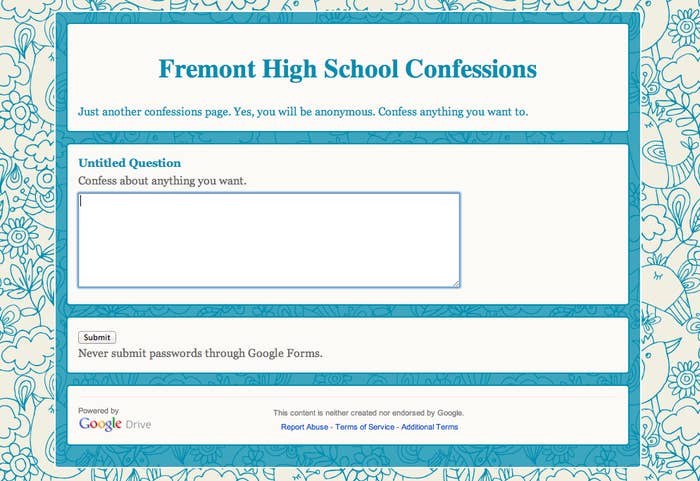
The large majority of posts are innocuous confessions about crushes — a sort of high school version of Craigslist's Missed Connections. There's also plenty of venting about "fake" friends, popular kids, guys being gross, girls dressing sluttily, and school generally sucking. But it gets dark too: There are confessions about cheating on girlfriends, having sex on campus, doing drugs, or cheating on tests. Gossip can quickly go viral. And real identities can be exposed, either directly or though thinly disguised descriptions.
Confession boxes and anonymous posts have long been a fixture on Tumblr, but seeing these things on Facebook, connected to specific schools, with the names of real students in the comment sections, makes the gossip more tantalizing (and, for participants, raises the stakes). It's anonymous, but within a clear context of reality.
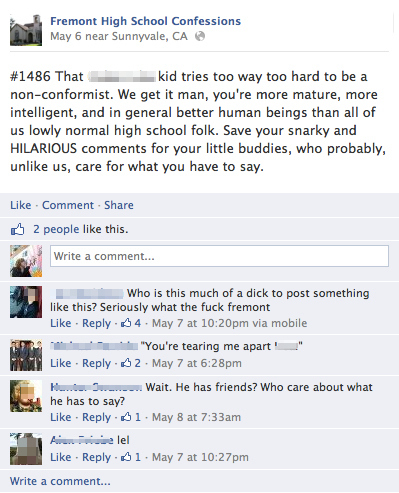
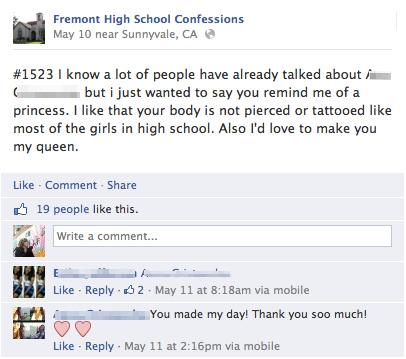
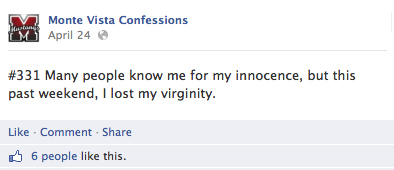
Some sites set up rules (no hate speech, no making fun of teachers, no naming individuals), and since the posting is carried out by a person, all exercise some degree of discretion. But things can quickly get out of hand.
For example, one Bay Area school page's admin shut it down after what a source called "the sandwich thing." The source explains, "It said, 'blank' jizzed in the sandwich and sold it to someone and they ate it, and it was very descriptive and very, very inappropriate."
In another more serious case, students from Aragon High School in San Mateo, California, shut their page down last March after someone posted a threat of school violence. (Police investigated and guarded the school, but the school stayed open and nothing happened.)

The anonymity of confession pages can also provide a safe space for people to talk. Some share their difficulties with eating disorders, depression, suicide; others struggle with the prospect of coming out. Many of those messages are met with encouragement, support, and even direct offers to talk with the person.
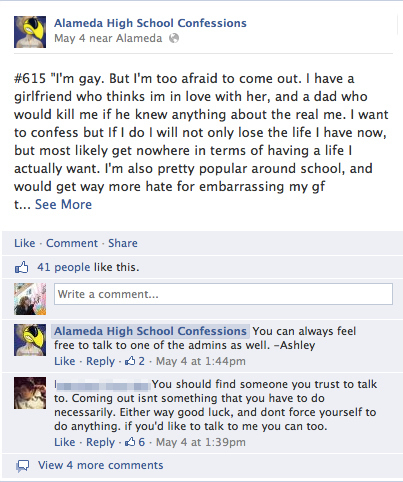

There is, of course, immature humor. But it's mixed with earnest messages. At their best, these confession pages serve as forums for students to discuss difficult issues and topics that they feel they otherwise can't.

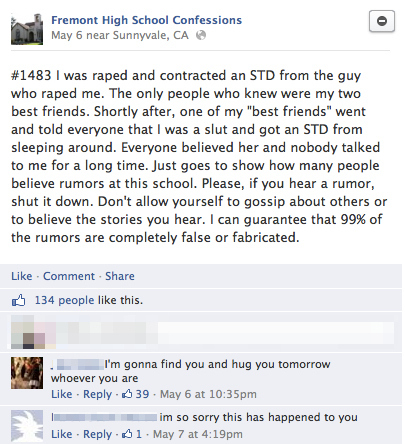
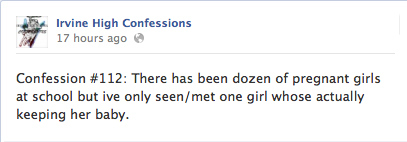
Since the sites are anonymous, it is hard for parents or school administrations to shut them down. They can try reporting them to Facebook, but unless they violate the terms of service, the company won't shut them down.
"These pages, just as every other page on Facebook, are still completely accountable to our terms. If the content violates [the terms] we will remove it and in some cases remove the page entirely," says Facebook. "We maintain a robust reporting infrastructure to keep an eye out for offensive or potentially dangerous content. This reporting infrastructure includes a trained team of reviewers who respond to reports and escalate them to law enforcement as needed."
Besides: If a confession page is ever shut down, students can create a new one. Both of the shuttered pages mentioned above were quickly replaced.
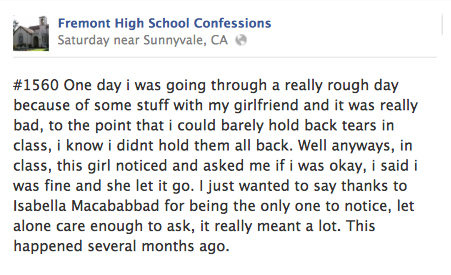
The confession page concept has spawned variations too; some students have even set up separate pages just for compliments. Others are simply a tamer take on the confession page, with posts about homework and AP tests, such as the one for San Francisco's magnet school Lowell's page.
Inevitably, though, students can be depended upon to be students. Among the most popular pastimes: Making a lot of fun of teachers.

